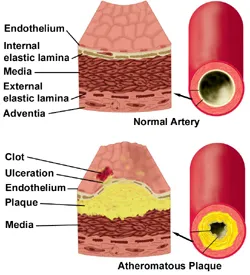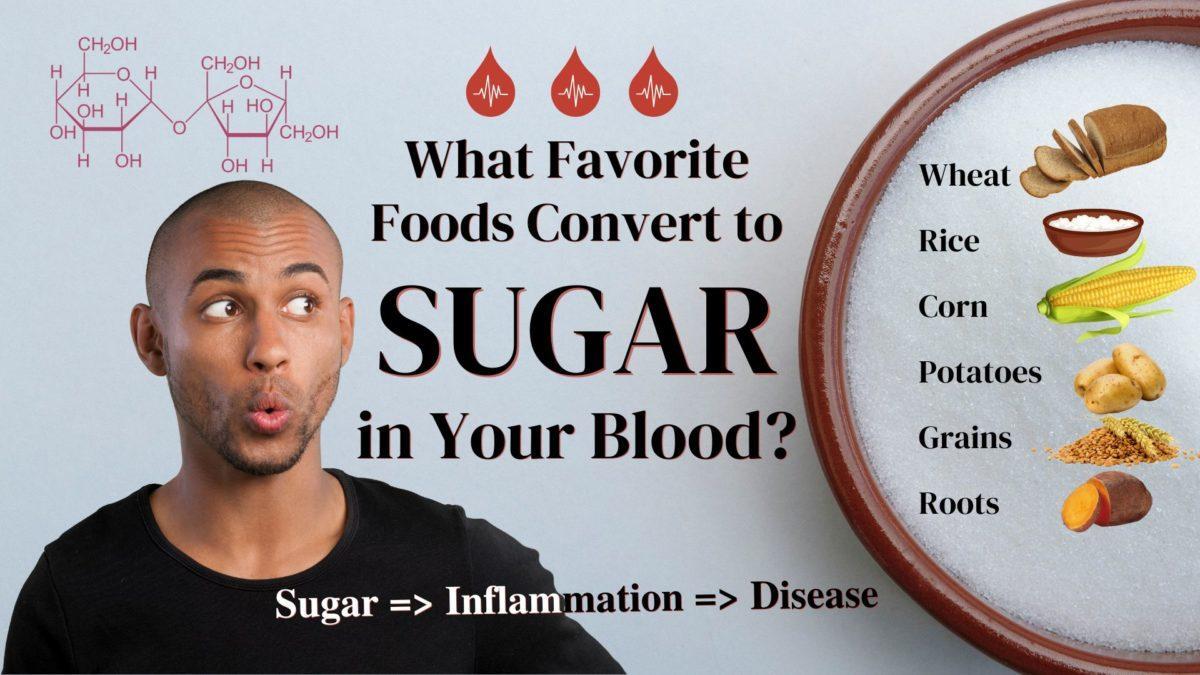
Shall we do some MYTH BUSTING? We all know sugar is BAD. And whole foods are GOOD. Yep, we’ve got that. But WHY do people eating a whole food diet per the government food pyramid, still end up with high cholesterol and heart disease? Maybe it’s not exactly BAD foods vs. GOOD foods. What about nutritious whole foods that CONVERT to sugar in the body? They may not TASTE sweet, but they quickly turn into SUGAR:
- Wheat,
- Rice,
- Corn,
- Potatoes,
- All Grains,
- All Roots.
Clearly, SUGAR causes inflammation, which leads to diseases like diabetes, cancer, heart disease, osteoporosis, and Alzheimer’s Disease. High Blood pressure is rampant all over the world, due to our collective misunderstanding of sugars, fats, and cholesterol. Let’s set the record straight. We all want to live a long and happy life. We have to study this issue to understand how to live healthy for many years. Sadly, this simple information you won’t hear from many doctors, yet it could save your life.
Inflammation Causes Disease.
But what is inflammation? Well, inflammation is an irritation in the body, tiny penetrations in the delicate endothelial layers inside the blood vessels, organs, or skin. Inflammation is caused by many surprising things, including injury, foreign particles, industrial farm chemicals, sugar, trauma, cell phone radiation, excess iron, nanotechnology, unhealthy fats, fluoride, toxins, alcohol, chemicals, microorganisms, parasites, vaccines, psychological excitement, and emotional stress. Ha Ha! We deal with these every day!
Sugar especially causes inflammation.
GLUCOSE has sharp little molecules that get stuck in the endothelium layers of the blood vessels, making little rips or tears. To heal the opening, your body makes hard plaque to close the wound. This can bring floating particles in the blood vessels and clots that slowly close the blood vessels. This is the cause of high blood pressure, heart disease, and stroke. It can cause similar problems in any part of the body.
Keep the blood clean.
It is very important to keep the blood clear of foreign particles and hard clots, especially if you had the vax. What can we do to avoid floaters in the blood? We can eat less sugar, so there will be less glucose spikes in the blood, to reduce the risk of disease. That is good. Avoid added sugar in coffee and soft drinks. Stay away from nutritionally empty foods like refined grains and white rice, which will definitely raise your blood sugar.
We all eat too much sugar.
And the BIGGEST SOURCE OF SUGAR is often our favorite foods like bread, rice, even whole grain bread and red rice, all grains, potatoes, and root veggies. These foods contain nutrition we need, but also have high carbohydrates which are immediately converted to sugar, and sent to the blood. To make matters worse, we are addicted to sugar, which stimulates the brain endorphins just like hard drugs. Oh dear!
How much glucose does the body really need?
Glucose is the sugar-fuel the body gets from carbs. We don’t need very much of it. And you can get all you need from whole foods. At any one time, the total glucose in the bloodstream of a healthy non-diabetic is about 5 grams or one teaspoon. Much more than that level of sugar in the blood is toxic. Much less and you would pass out. Some studies show that the body needs about 5 grams of glucose per hour. The brain is the major consumer of glucose, needing maybe 120 grams per day for most people.
In the image, we can see how very small low density lipoproteins (LDLs) get stuck behind the arterial wall, and become oxidized. This causes plaque to form. Sugar is notorious for causing the delicate endothelium layer of a blood vessel to become ulcerated and breached.
Inflammation is the immune system’s response to harmful stimuli. In the body tissues, inflammation shows up as redness, swelling, heat, pain, and loss of tissue function, which result from local immune, vascular and inflammatory cell responses. What are those responses?
When an LDL particle is trapped behind the endothelium, it oxidizes and becomes a free radical. White blood cells soon show up to “clean up” the damage, but they too become trapped and oxidized. This process causes more inflammation and damage to the blood vessel, which attracts more LDL and white blood cells. This is the beginning of atherosclerosis. The plaque continues to build until it finally breaks through the endothelium, forming a clot, and circulation is blocked.
What can we do?
Some people eat a strict low carb or Keto diet, but this can be difficult and even unhealthy. Today we are looking at CARBOHYDRATES only. There are many other factors that make food healthy, such as nutritional content, vitamins, minerals, fiber, life force. We are happier when we eat what we enjoy.
(This article is specifically about foods that convert to glucose and cause inflammation. Today we won’t discuss fructose, fiber, Keto, low-carb diets, or meat. And we will not discuss the other causes of inflammation: foreign particles, industrial farm chemicals, sugar, trauma, cell phone radiation, excess iron, nanotechnology, unhealthy fats, fluoride, toxins, alcohol, chemicals, microorganisms, parasites, vaccines, psychological excitement, and emotional stress, all of which can cause inflammation. These are questions for another day. Ha Ha!)
High Blood Pressure is NOT caused by Cholesterol
Everybody has heard that cholesterol and dietary fats “clog up your arteries” and “cause heart disease”. Some doctors firmly believe that prescribing cholesterol-lowering drugs will solve the problem, The pharmaceutical powers work toward an ultimate goal: to put everyone including our children, on “preventative” cholesterol lowering medication. Meanwhile, the global statin drug industry as grown by more than 20% every year, and it now exceeds $ 24 billion dollars per annum. The major players are always the same: Pfizer, AstraZeneca, Aurobindo Pharma, Biocon, GlaxoSmithKline, Merck, and Novartis. These Statin Drugs DO actually lower cholesterol. However, they do not change the rate of deaths from heart disease, because they do not address the root problem, which is INFLAMMATION. Meanwhile, over 2 billion people worldwide continue to suffer from hypertension, which is the precursor to heart disease and stroke. At least 60% of the people who suffer heart attacks have normal levels of blood cholesterol, but the medical media will not tell you this. It’s all due to inflammation.
What is Cholesterol?
We have been told for decades that cholesterol is BAD BAD BAD. But did you know that 75-80 % of our cholesterol is produced by our liver? And less than 20% of our cholesterol comes from our food. Almost everything we think we know about cholesterol is a case of misunderstanding and jumping to conclusions without scientific proof.
Our bodies are made of trillions of cells, and almost every cell produces cholesterol all the time during everyone’s life. That’s because every cell of every organ has cholesterol as part of its structure. Cholesterol is a waxy organic compound found especially in the liver, spinal cord, and brain. It helps us produce vitamin D, adrenal hormones like cortisol, and sex hormones. Cholesterol is an important component in brain synapses and the immune system.
Cholesterol is actually a HEALING agent in the body. Cholesterol is an essential component in the scabs that heal wounds in the skin. It also makes plaque deposits in artery walls. When your body has a wound, internal or external, it produces cholesterol and sends it out to the site of the damage. When your liver receives a signal that a wound has happened in the body, it gets to work and sends cholesterol to patch the damage using a shuttle called LDL (low-density lipoprotein). So, a rip in the blood vessel will create a similar “scab” that is also made of cholesterol.
If you have high blood cholesterol, it means that the body is dealing with some damage and inflammation. If there are foreign particles, a wound, or inflammation anywhere in the body, the liver works hard to send out as much cholesterol as possible to deal with the free radical attack. In those times your blood cholesterol will be high. When the inflammation is reduced, then cholesterol is lower. We don’t need drugs to control our cholesterol level. We can control it ourselves by reducing inflammation.
Cholesterol is essentially a measure of your INFLAMMATION level. Whenever there is high sugar or stress, cholesterol will be high. When we have less sugar or toxic stress, INFLAMMATION goes down, and cholesterol level follows.
Studies show that a low cholesterol or low carb diet do not reduce cholesterol or death from heart disease. We now know that saturated fat, animal fat, and cholesterol in our food have ZERO EFFECT on our blood cholesterol level. Why? Because every organ and every cell in your body makes cholesterol. When we eat lots of cholesterol foods – the body makes less. When we eat less cholesterol, the body makes more. But the food industry would not like you to know this fact. True root of disease is INFLAMMATION, caused by many factors listed above, ESPECIALLY SUGAR. Source #1, Source #2.
You can kick the sugar addiction.
Why do we crave SUGAR? Everyone needs sweet. It’s irresistible, like a mother’s love. It’s beyond words. And when we want it, our mind will justify it in a thousand ways to HAVE it. It is always possible to break addiction. But it is one of the most difficult things in the world to accomplish permanently. Like sugar, coffee, and cigarettes, to quit feels very stressful. We think we might go crazy. It is best to do it slowly. You can break a habit gently and permanently.
To solve the riddle, we need to look deeper.
What is it that you REALLY crave? Is it kindness, love, and belonging? Self-acceptance, a rich and fulfilling life? Listen within yourself – maybe it’s something like that. So, we can do nice things for ourselves. Self care like taking a nice hot bath, making a cup of tea, creating a peace corner in your home. Whatever it is that fills that hole of craving madness inside you, do it! Give yourself a sweet gift every day, while you slowly reduce your sugar intake. Give random gifts of kindness to the people around you. Because what you give, you will receive back one hundred fold. In this way perhaps we can reduce sugar cravings and be healthier and happier.
Happiness is learning to control your own mind.
While a low carb diet might help you for a while, the key to healing ourselves is in the mind. There are no “bad foods” or “good foods”. There is only balance and harmony. We are all works in progress. As we zigzag our way to health and wellness, we will understand that inflammation is nothing but irritation. And as we raise our frequency and mindfully care for ourselves and our environment, chronic disease can be a thing of the past.
Sugar touches the brain center that controls addiction, so a sugar habit is the same as drugs like heroin or fentanyl. When you suddenly need a sweet, maybe you are actually craving something deeper? We all need sweetness. Use your mind to find a creative way to distract, to sidetrack your addiction with beauty and joy. Think about someone you really love, give yourself some flowers, be extra generous with others, make a nice meal your family will love. The secret is in the mind.
My solution is this:
See the charts below. Eat zero EMPTY foods, EAT LESS of the foods that convert to sugar, and EAT MORE of the nutritious low-sugar foods. Another way to say it: Avoid all processed foods, eat NO added sugars, eat moderate amounts of healthy whole grains and roots, eat lots of delicious vegetables and proteins. I work diligently to avoid toxins, and get plenty of sleep. To reduce stress, I take a hot baking soda and Epsom salt bath every night. I try to do one thing just for FUN every day. And I try to limit computer time before bed.
If we know what foods cause sugar spikes in our body, then inflammation will not block our blood vessels. YAY! Maybe the USDA food pyramid that tells us to eat lots of carbs is a MYTH! Let’s just bust that myth! Read the chart below and choose how to make your healthy living plan. It’s all about balance for a long and happy life. Thank you!
# Carbs per 100 grams
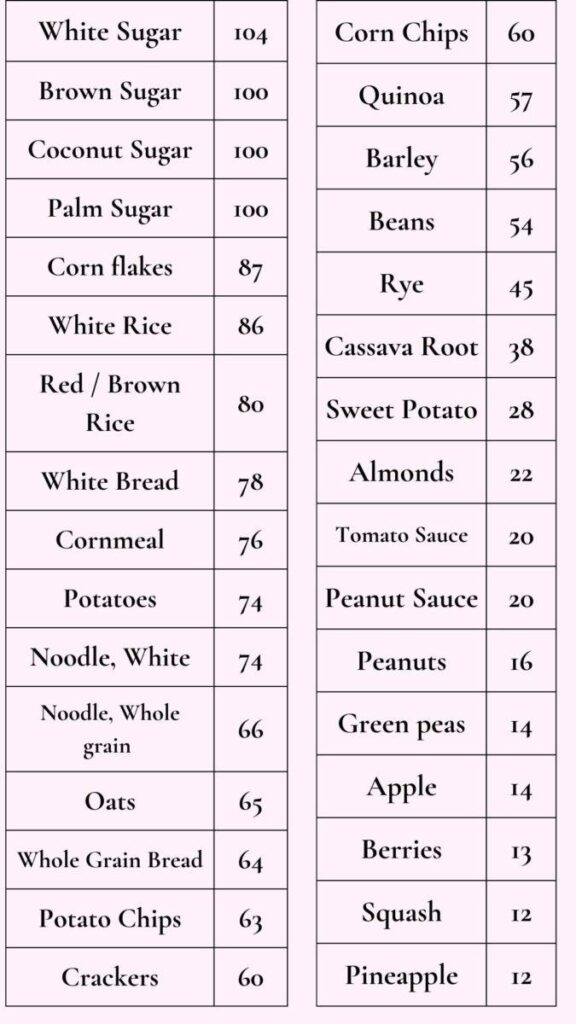
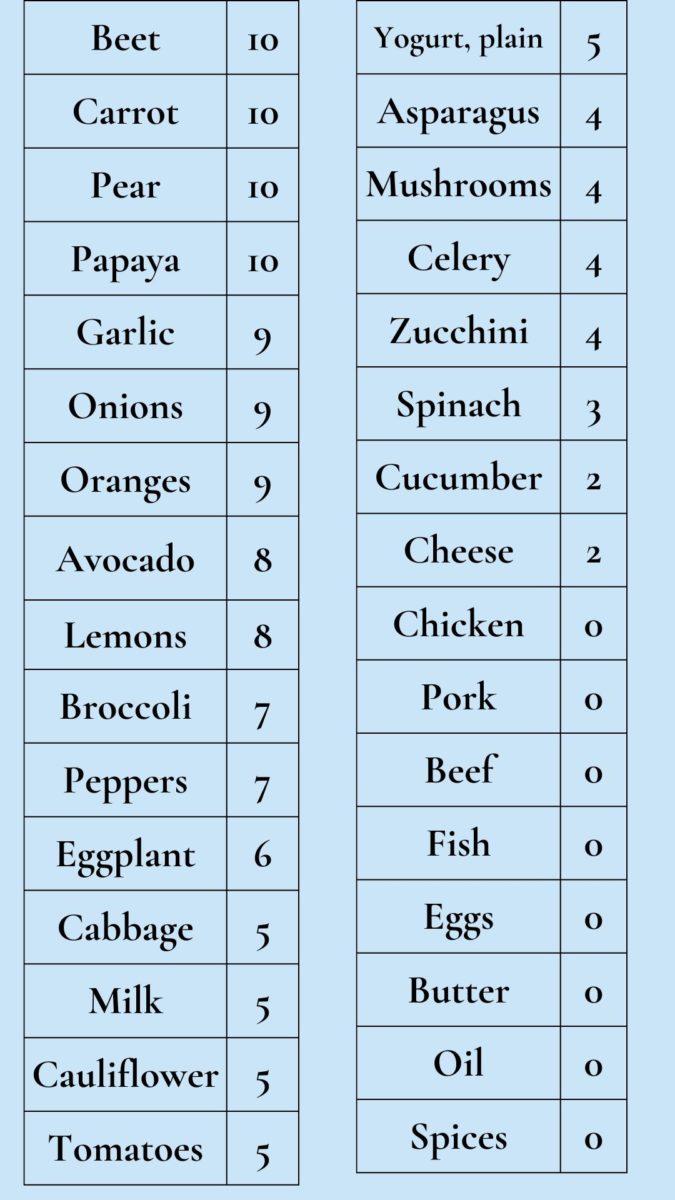
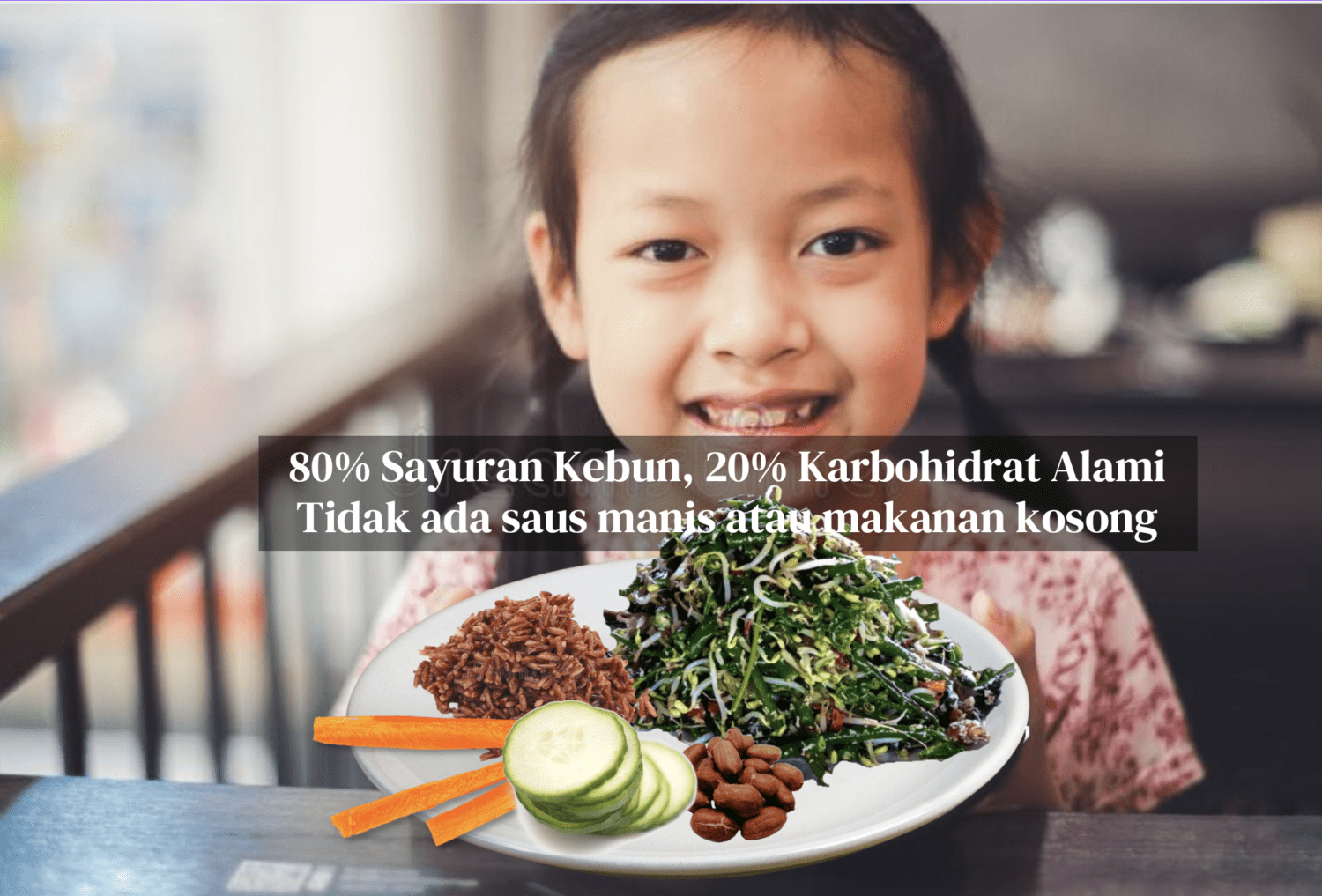
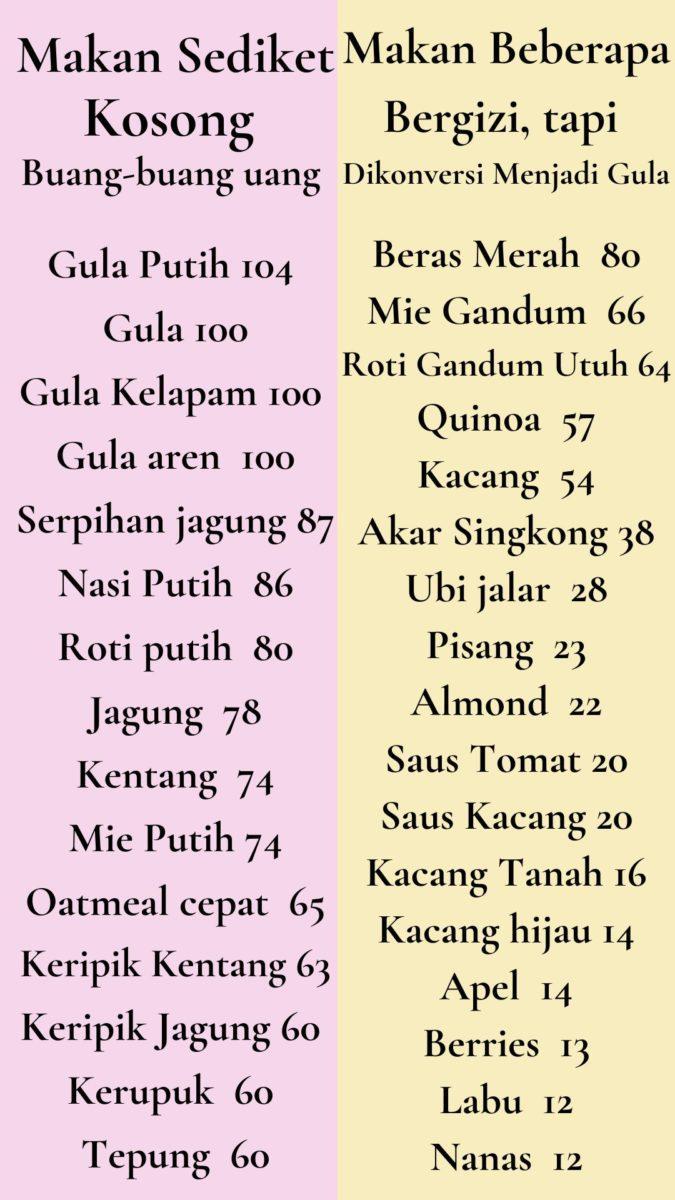
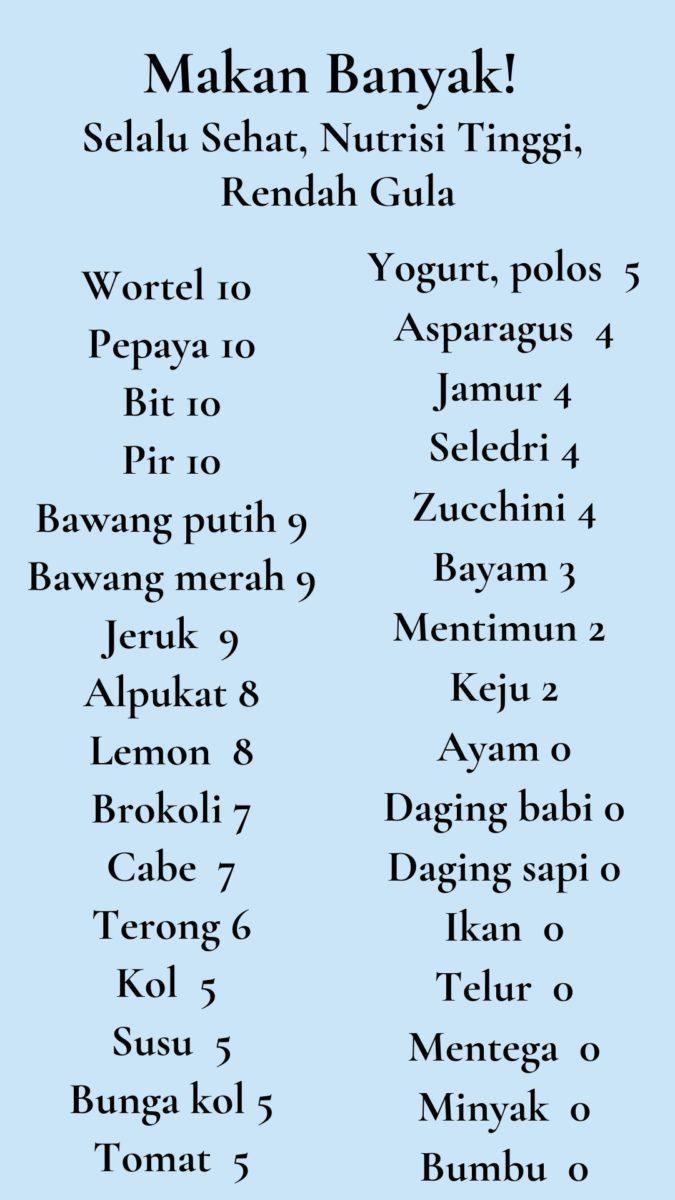
Resources:
- Is cholesterol bad for you? Many people ask the question “Is Cholesterol Bad For You?”. The answer is…, http://londonclinicofnutrition.co.uk/nutrition-articles/is-cholesterol-bad-for-you/
- Statins: the drug firms’ goldmine, https://www.telegraph.co.uk/news/health/news/8267876/Statins-the-drug-firms-goldmine.html
- https://www.thefoodchart.com/carbohydrates-food-chart.php, http://londonclinicofnutrition.co.uk/nutrition-articles/is-cholesterol-bad-for-you/
- https://www.etoolsage.com/Chart/High_Carb_Foods_List.asp
- https://www.verywellhealth.com/list-of-starchy-vegetables-1087454
- Inflammatory responses and inflammation-associated diseases in organs, https://www.ncbi.nlm.nih.gov/pmc/articles/PMC5805548/
- https://www.britannica.com/science/ionizing-radiation
- Effect of mobile phone radiation on oxidative stress, inflammatory response, and contextual fear memory in Wistar rat, https://pubmed.ncbi.nlm.nih.gov/32212071/
- https://www.rfsafe.com/studyproof-cell-phone-radiation-exacerbates-disease-inflammation-etiologic-factor/
- Oxidative stress, inflammation, and cancer: How are they linked?, https://www.ncbi.nlm.nih.gov/pmc/articles/PMC2990475/
- Free Radicals, Antioxidants in Disease and Health, https://www.ncbi.nlm.nih.gov/pmc/articles/PMC3614697/
- https://www.dietsmealplan.com/meal-plan/low-carbohydrate-foods-list/
- https://www.healthline.com/nutrition/healthy-low-carb-foods#seafoods
- https://teamhealthcareclinic.com/brain-inflammation-sugar-surprising-connection/
- Brainwave Impermanence: The Science of Miracles with Dr. Jill Bolte Taylor + Dr. Jeffrey Rediger, https://www.youtube.com/watch?v=TsB_A7KDG9I
- Left brain right brain exercise Dr. Jill Bolte Taylor, https://www.youtube.com/watch?v=cqVyFuUKx0s
- https://www.youtube.com/watch?v=ENbjHLSFNbo
- https://www.youtube.com/watch?v=j8rIAxeiHnk
- https://www.youtube.com/watch?v=njT428_JYzI
- https://www.youtube.com/watch?v=zfAqC1oPbkw



